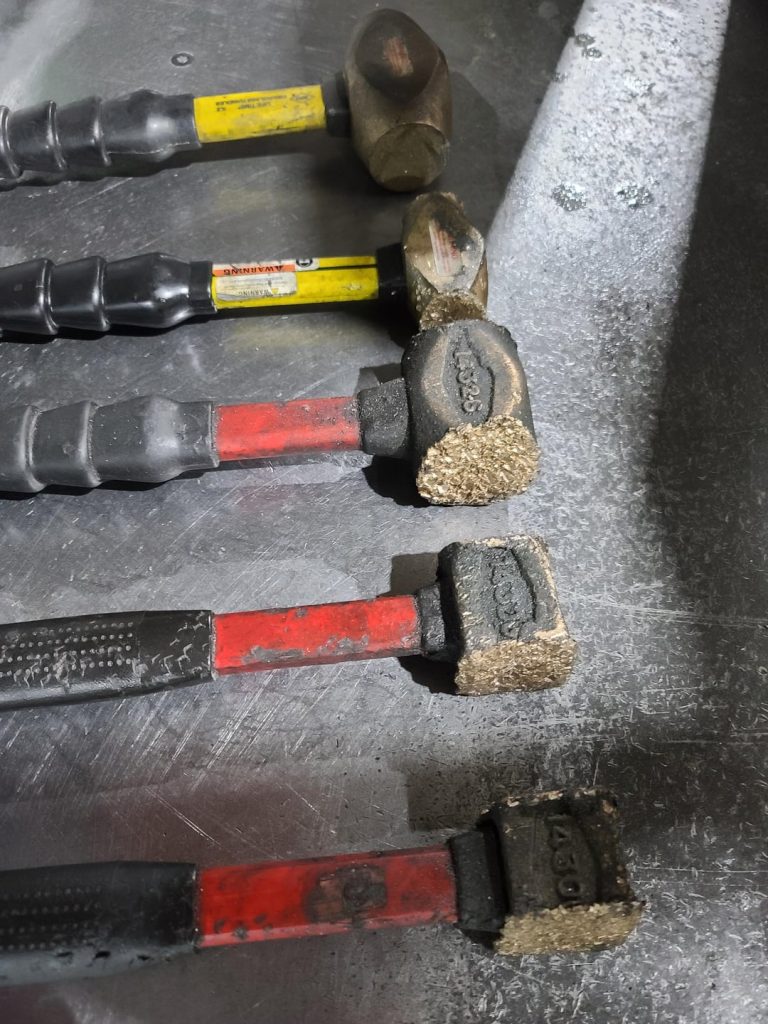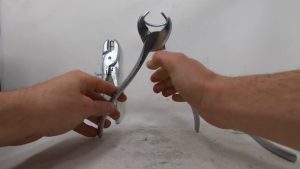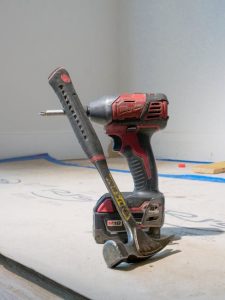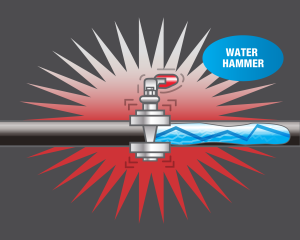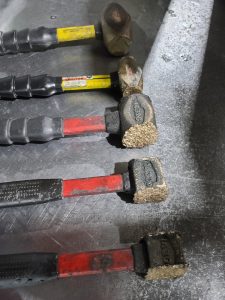Imagine you’re tackling a project that requires precision and care. You reach for a tool that won’t mar or damage your workpiece.
That’s where a brass hammer comes into play. Unlike its steel counterparts, a brass hammer is softer and more forgiving, making it perfect for jobs where delicacy is key. But what exactly can you use it for? As you explore the versatility of this handy tool, you’ll discover its unique benefits and how it can make your tasks easier and more efficient.
Whether you’re a seasoned craftsman or a DIY enthusiast, understanding the uses of a brass hammer could be the game-changer in your toolkit. Keep reading to uncover how this humble tool can enhance your projects and why it might just become your new favorite go-to.
Brass Hammer Basics
Brass hammers are essential tools in many workshops. They are known for their unique properties and specific uses. Understanding the basics of brass hammers can help in choosing the right tool for a task. Brass hammers have distinct characteristics that make them different from other hammers. This guide will explore their features and uses.
Understanding Brass Material
Brass is an alloy of copper and zinc. It is softer than steel. This softness makes brass hammers ideal for tasks requiring precision. They do not damage surfaces like steel hammers might. Brass is also non-sparking. This makes it safe in areas with flammable materials.
Design And Structure
Brass hammers come in various shapes and sizes. The head is usually solid brass. This provides weight and balance for striking. The handle is often wooden or fiberglass. It offers comfort and reduces vibration during use. The design ensures control and accuracy in delicate tasks.
Common Uses
Brass hammers are used in automotive and machinery work. They help in fitting and adjusting parts without causing damage. Jewelers use them for shaping metals. They are also useful in woodworking for assembling furniture. Their non-marring surface protects finishes and delicate materials.
Advantages Of Brass Hammers
Brass hammers offer many benefits. They do not rust, ensuring longevity. They reduce the risk of sparks, enhancing safety. Their gentle impact protects surfaces from scratches and dents. This makes them ideal for sensitive tasks. They are versatile and reliable tools in many trades.
Credit: www.reddit.com
Unique Features
Brass hammers excel in tasks requiring precision without damaging surfaces. Their non-sparking nature makes them ideal for flammable environments. Often used in metalwork, they deliver powerful strikes while minimizing the risk of deforming the workpiece.
When you think of a hammer, you might picture the classic claw hammer used for everyday tasks. But have you ever wondered about the unique features that make a brass hammer stand out? These specialized tools are designed with specific characteristics that make them invaluable in certain situations. Understanding these features can help you appreciate why a brass hammer might be the perfect addition to your toolbox.
Material Composition
A brass hammer is made from a unique alloy of copper and zinc. This combination results in a softer metal compared to steel. Because of this softer composition, brass hammers are less likely to damage the surfaces they strike. This is especially useful in delicate work, such as assembling machinery or working with soft metals. You might find a brass hammer handy when precision is key and you need to avoid leaving marks.
Design Characteristics
The design of a brass hammer typically features a simple yet effective layout. The head is often cylindrical, providing a balanced and controlled strike. This design aids in achieving precision without causing unnecessary damage. The handle is usually made from wood or fiberglass, offering durability and comfort during prolonged use. Imagine working on a delicate clock mechanism; the design helps you apply just the right amount of force without fear of overdoing it. Do you ever find yourself needing a tool that offers precision and care? Consider how a brass hammer’s design might fit into your next project. In my own experience, a brass hammer came in handy while restoring an antique car. The need for gentle, precise taps on sensitive parts made this tool my go-to choice. What projects could benefit from such a specialized tool in your workshop?
Key Applications
Brass hammers are versatile tools with many key applications. Their unique properties make them suitable for tasks requiring precision and safety. Below are some primary uses that highlight their importance in various fields.
Automotive Repairs
Brass hammers are essential in automotive repairs. They are useful for tasks needing gentle force without damaging surfaces. Brass is softer than steel, so it minimizes the risk of dents. Mechanics use them to adjust or remove parts without harming the car’s body.
These hammers are also non-sparking. This feature is critical in environments with flammable materials. Safe use in fuel systems is one advantage. Their non-magnetic nature makes them ideal for electronic parts.
Metalworking Tasks
In metalworking, brass hammers are valuable tools. They help shape metal without leaving marks. Craftsmen use them for delicate tasks like forming jewelry. The soft material avoids scratches on polished surfaces.
Brass hammers are perfect for aligning metal pieces. They provide control in fine adjustments. Ideal for tasks requiring precision. They are tools of choice for many artisans.
Machinery Maintenance
Maintaining machinery often requires brass hammers. They are used to adjust machine parts safely. Their soft material protects sensitive components. Useful for removing stuck parts without damage.
Brass hammers also ensure safety in maintenance. Their non-sparking feature prevents fires in risky areas. Essential for maintaining machines in hazardous environments. A reliable tool for technicians.
Credit: www.reddit.com
Advantages Over Steel Hammers
Brass hammers offer distinct advantages over steel hammers. They serve specific purposes in various industries. While steel hammers are common, brass hammers provide unique benefits. Let’s explore these advantages.
Non-sparking Properties
Brass hammers do not spark. This makes them ideal for hazardous environments. Steel hammers can cause sparks. Sparks are dangerous in explosive areas. Brass hammers prevent this risk. They ensure safety in flammable workplaces. Industries like mining and oil benefit greatly.
Surface Protection
Brass hammers protect surfaces from damage. They are softer than steel. This prevents marring or scratching. Delicate materials remain unharmed. Steel hammers can leave marks. Brass ensures gentle contact. It is perfect for sensitive projects. Jewelers and machinists often prefer them.
Safety Considerations
When working with a brass hammer, safety considerations are crucial to protect yourself and those around you. Brass hammers are known for their non-sparking and soft properties, which make them ideal for specific tasks. However, improper use or neglect can lead to accidents or damage. Let’s dive into how you can handle and maintain your brass hammer safely.
Proper Handling Techniques
Handling a brass hammer requires a firm grip and focused attention. Always ensure that your hands are dry and free of any substances that could lead to slipping. A secure grip prevents accidental drops and increases precision.
Before you begin using the hammer, inspect the work area. Clear any obstacles that could cause you to trip or misplace your hammer. This ensures you have a steady stance and can swing with accuracy.
Consider the weight and size of the hammer. If you feel uncomfortable or fatigued, take breaks. This prevents straining your muscles and reduces the risk of mishaps.
Maintenance Tips
Regular maintenance of your brass hammer extends its lifespan and ensures safety. After each use, wipe the hammer clean to remove any debris or moisture. This prevents corrosion and keeps the hammer in good condition.
Store your hammer in a dry place. Avoid leaving it in damp environments which can damage the material over time. A designated toolbox or shelf can keep it safe from environmental hazards.
Check for wear and tear periodically. If the hammerhead becomes loose, tighten it immediately. A loose head can be dangerous and affect your task’s precision.
Think about how often you use your brass hammer. Frequent use may require more regular inspections and maintenance. Do you have a routine for checking your tools? Establishing one can save time and ensure safety.
In your experience, have you noticed the benefits of keeping your tools well-maintained? A little effort in upkeep can prevent costly replacements and ensure your safety during projects.
Choosing The Right Brass Hammer
Brass hammers serve various purposes, including shaping soft metals without causing damage. Ideal for delicate tasks, they prevent marring surfaces. Useful in jewelry making, they offer control and precision.
Choosing the right brass hammer isn’t just about picking the first one you see on the shelf. It’s about understanding the specific needs of your project and matching them with the right tool. Whether you’re a DIY enthusiast or a professional craftsman, the right brass hammer can make all the difference in your work’s precision and quality.
Size And Weight Factors
The size and weight of a brass hammer can greatly influence its effectiveness. A lighter hammer is perfect for delicate tasks where finesse is required, like jewelry making or electronics repair. On the other hand, a heavier hammer is more suited for tasks requiring more force, such as metalworking or automotive repairs. Consider what you’ll be using it for most often. A versatile option might be a mid-weight hammer that provides a balance between precision and power. Think about how a hammer’s weight can affect your hand fatigue over long periods of use.
Brand And Quality Options
Not all brass hammers are created equal. Some brands are known for their durability and ergonomic design, while others might offer affordability but compromise on quality. Investing in a reputable brand often means you’re getting a tool that will last longer and perform better. Look for brands that offer warranties or guarantees, as this can be a sign of their confidence in their product. You might pay a little more upfront, but a high-quality hammer can save you money in the long run by reducing the need for replacements. Have you ever purchased a tool only to have it break after a few uses? It’s frustrating and a waste of resources. Choosing a quality brass hammer can help you avoid this pitfall and ensure that your projects are completed with ease and precision.

Credit: www.peterverdone.com
Frequently Asked Questions
Will A Brass Hammer Damage Threads?
A brass hammer is less likely to damage threads compared to steel hammers. Brass is softer, reducing impact force. Use gentle taps to minimize risk. Always inspect threads after use to ensure safety.
When Should A Brass Hammer Be Used In Automotive?
Use a brass hammer for tasks requiring non-marring impact in automotive work. It’s ideal for delicate parts. Brass hammers prevent damage to surfaces, making them perfect for aligning, assembling, or disassembling components without harming finishes. Always choose brass for soft metals or sensitive applications.
What Do You Use A Brass Mallet For?
A brass mallet is used for delicate tasks where minimal marring is crucial. It efficiently shapes metal, leather, and wood, offering control and precision. Its soft head reduces surface damage, making it ideal for jewelers, woodworkers, and metalworkers.
What Is The Difference Between Copper And Brass Hammers?
Copper hammers are softer, ideal for delicate tasks. Brass hammers are harder, suitable for heavy-duty applications. Copper reduces spark risk, while brass provides durability. Choose based on the specific job requirements.
Conclusion
Brass hammers serve many purposes in various trades. They offer precision and safety. Ideal for delicate tasks without causing damage. Jewelry makers and machinists often use them. Their non-sparking nature suits explosive environments. A reliable tool for striking without leaving marks.
Essential for both professionals and hobbyists. Always ensure the right tool for the job. Brass hammers provide unique benefits. Their versatility makes them a valuable addition. Consider one for your toolkit. Enhance your work with careful, precise strikes. A simple tool with significant impact.

